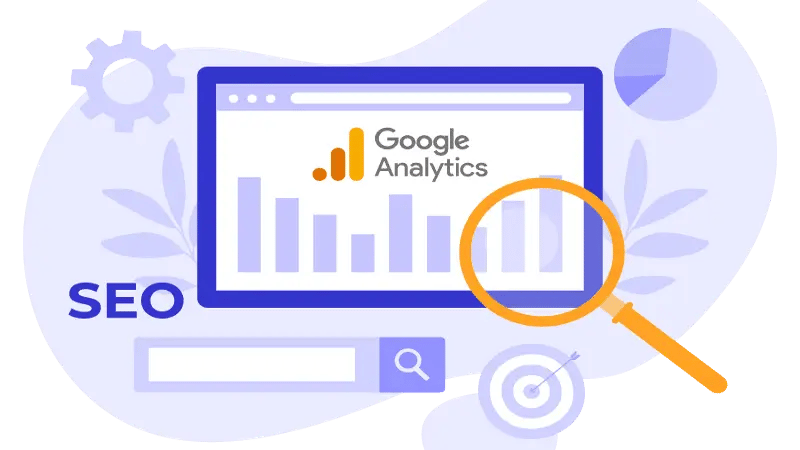Google EEAT: Why is it Critical for Your Content Marketing?
While content is a significant aspect of digital marketing today, the rules of the game are constantly changing, making it difficult for marketers to keep up. As such, Google's focus on Experience, Expertise, Authoritativeness, and Trustworthiness (EEAT) has become paramount. These guidelines directly impact how your content ranks and performs.
In this blog, we'll explore the significance of EEAT, unravel its complexities, and equip you with actionable strategies to elevate your content.
What is Google EEAT?
In the vast digital landscape, where information flows ceaselessly, Google strives to deliver the most relevant and reliable content to its users. This pursuit led to the development of the EEAT concept, an acronym that stands for Experience, Expertise, Authoritativeness, and Trustworthiness. EEAT serves as a guiding principle for content creators and website owners, shaping how Google assesses and ranks web pages.
Let's break down each element of E-E-A-T:
-
Experience: While expertise and authoritativeness have long been vital, Google now recognizes the unique value of firsthand experience. If a content creator demonstrates personal or professional experience related to the topic, it lends a layer of authenticity and credibility to their content. For example, a travel blogger sharing their personal adventures in a specific location adds a dimension of trust that cannot be replicated by mere research.
-
Expertise: Expertise signifies the depth of knowledge and skills possessed by the content creator or the website itself. It's about showcasing a mastery of the subject matter through well-researched, informative, and insightful content. A blog post about heart health written by a cardiologist carries far more weight than one written by someone with no medical background.
-
Authoritativeness: Authoritativeness relates to the reputation and credibility of the content creator, the website, and the content itself. It's about being recognized as a reliable source of information within your industry or niche. Backlinks from reputable websites, positive reviews, and mentions in industry publications all contribute to building authoritativeness.
-
Trustworthiness: Trustworthiness encompasses the reliability, honesty, and safety of the website and its content. Google wants to ensure that users can rely on the information they find, particularly when it concerns sensitive topics like health, finance, or legal matters. Clear contact information, secure browsing protocols (HTTPS), and a transparent privacy policy all contribute to building trustworthiness.
EEAT, Previously Known as EAT
The concept of EEAT evolved from its predecessor, EAT (Expertise, Authoritativeness, and Trustworthiness). While EAT remains fundamental, the addition of "Experience" underscores Google's commitment to providing users with the most valuable and relevant information.
This evolution reflects the growing recognition that firsthand experience can add a unique layer of depth and credibility to content. It also aligns with Google's broader mission to prioritize user satisfaction by delivering search results that are not only informative but also trustworthy and reliable.
The EEAT update has significant implications for content creators. It signals a shift away from solely focusing on keyword optimization and towards producing high-quality content that demonstrates expertise, authoritativeness, and trustworthiness, ideally backed by personal experience. It's a call to action for content creators to prioritize value, authenticity, and relevance in their work.
The Impact of EEAT on Content Marketing
The impact of EEAT on content marketing is profound, directly influencing search rankings, visibility, user engagement, and trust. Let's dive into how EEAT is reshaping the content landscape:
Search Rankings and Visibility
EEAT serves as a guiding light for Google's search algorithms, directly influencing where your content appears in search results. Content that demonstrates high levels of Experience, Expertise, Authoritativeness, and Trustworthiness is more likely to secure coveted top spots, while content lacking in these areas may struggle to gain visibility.
Numerous studies and case studies have shown a strong correlation between high EEAT scores and improved search visibility. One Searchmetrics analysis reported that websites with strong EEAT signals are 53% more likely to rank in the top 10 search results compared to those with weaker signals. Similarly, a case study by Moz showcased how a health and wellness website experienced a 32% increase in organic traffic within six months of implementing EEAT-focused content strategies.
This correlation underscores the importance of aligning your content with EEAT principles.
It's no longer enough to simply stuff your content with keywords; you need to demonstrate genuine expertise, authoritativeness, and trustworthiness to earn Google's favor and secure prominent placement in search results.
User Engagement and Trust
EEAT isn't just about pleasing search engines; it's about fostering genuine connections with your audience. Content that embodies EEAT principles naturally attracts and engages users. People are more likely to spend time on, share, and interact with content they perceive as valuable, credible, and trustworthy.
One study found that 84% of users consider author credentials when assessing the credibility of online content. Additionally, 70% of users say they are more likely to trust a website that clearly displays its contact information and privacy policy.
Several brands have successfully leveraged EEAT to cultivate loyal followings. For instance, Mayo Clinic, a renowned medical institution, consistently produces high-quality health content that reflects their expertise and authoritativeness. This has earned them immense trust among users, solidifying their position as a go-to source for health information. Similarly, Wirecutter, a product review website known for its rigorous testing and unbiased recommendations, has gained a loyal following due to its commitment to trustworthiness and transparency.
Overall, EEAT acts as a bridge between content creators and their audiences. It enables you to build meaningful relationships based on trust, credibility, and value. By prioritizing EEAT in your content strategy, you can foster deeper engagement, encourage repeat visits, and ultimately convert visitors into loyal customers.
How to Implement EEAT in Your Content Strategy
1. Content Creation
The days of churning out mediocre content to game search algorithms are long gone. EEAT demands a focus on quality. It's about crafting original, well-researched, and insightful pieces that resonate with your audience and leave a lasting impact. Every blog post, article, or video you produce should exude expertise, offering unique perspectives and actionable takeaways.
Don't shy away from showcasing the expertise and experience of your content creators. Highlight their credentials, qualifications, and relevant experience. This adds credibility to your content and humanizes your brand, fostering a deeper connection with your audience.
Finally, incorporate relevant data, statistics, and citations to support your claims. This reinforces your expertise and demonstrates that your content is well-researched and grounded in facts. Remember, Google values accuracy and reliability, and so do your readers.
2. Website Optimization
Your website serves as the digital storefront for your brand. It's crucial to optimize it for EEAT to instill trust and confidence in your visitors. Start by ensuring that your "About Us" and "Contact Us" pages are clear, comprehensive, and easily accessible. This transparency signals to Google and your audience that you're a legitimate entity that's readily available for communication.
Next, implement secure browsing protocols (HTTPS). This safeguards user data and protects against cyber threats, further enhancing your website's trustworthiness.
Feature author bios and credentials alongside your content. This allows readers to gauge the expertise of the content creators and adds an additional layer of credibility.
It's also helpful to encourage and showcase positive user reviews and testimonials. This social proof serves as a powerful validation of your brand's trustworthiness and can significantly influence potential customers.
3. Off-Page SEO
While on-page optimization is crucial, EEAT extends beyond your website's boundaries. It's about building authority and credibility across the web. One effective way to do this is by securing high-quality backlinks from authoritative websites in your industry. These backlinks act as votes of confidence, signaling to Google that your content is valuable and trustworthy.
Another powerful strategy is establishing thought leadership through guest posting and contributions to industry publications. This expands your reach and positions you as an expert in your field.
Lastly, actively engage with your audience on social media and other online platforms. Respond to comments, participate in discussions, and share valuable insights. This interaction fosters a sense of community and demonstrates your commitment to building genuine relationships with your audience.
How to Measure and Improve EEAT
EEAT isn't a one-time fix; it's a continuous journey of improvement. Measuring your progress and refining your strategy is essential to maintain and enhance your EEAT signals over time.
Measure Key Performance Indicators (KPIs)
While EEAT itself isn't directly quantifiable, several metrics can serve as indicators of your progress. Organic search traffic, click-through rates, time on page, and bounce rates can all reveal how well your content resonates with users and search engines.
Google Search Console offers invaluable data on your search performance, including impressions, clicks, and average position. Additionally, leverage analytics tools to track user behavior and identify potential areas for improvement.
Set clear benchmarks and goals based on your current performance. Regularly monitor these KPIs to gauge the effectiveness of your EEAT-focused strategies and make data-driven adjustments as needed.
Conduct Regular Audits and Refinements
Conducting periodic EEAT audits is essential to identify strengths, weaknesses, and areas for improvement. Scrutinize your website's "About Us" and "Contact Us" pages, author bios, content quality, and backlink profile. Look for outdated information, broken links, or any potential trust issues.
Once you've identified areas for refinement, take action. Update author bios, refresh outdated content, and actively pursue high-quality backlinks. Continuously strive to enhance your website's user experience, ensuring seamless navigation, fast loading times, and mobile responsiveness.
Lastly, stay informed about Google's algorithm updates. The search landscape is constantly evolving, and staying abreast of these changes will enable you to adapt your strategy proactively and maintain your competitive edge.
Remember, EEAT is a journey, not a destination. By consistently measuring, refining, and adapting your approach, you can ensure that your content not only meets but exceeds Google's expectations, ultimately leading to improved search rankings, increased visibility, and lasting success in the digital realm.
Embracing EEAT: Your Path to Content Marketing Success
If you're looking to master Google EEAT guidelines, your content marketing strategy needs more than just keywords; it demands experience, expertise, authoritativeness, and trustworthiness. By implementing the strategies outlined above, you can ensure your content not only ranks well but also resonates with your audience, builds trust, and drives meaningful engagement.
If navigating the complexities of EEAT feels overwhelming, consider partnering with Aspiration Marketing! Our team of seasoned professionals specializes in crafting content strategies that align with Google's ever-evolving guidelines, empowering your brand to thrive in the digital age.
Contact us today to unlock the true potential of your content marketing and ensure your brand stands out in the crowded online landscape.
This content is also available in:
- German: Google EEAT: Warum ist es entscheidend für Ihr Content Marketing?
- Spanish: Google EEAT: ¿Por qué es fundamental para su content marketing?
- French: Google EEAT : Pourquoi est-il essentiel pour le marketing de contenu ?
- Italian: Google EEAT: perché è fondamentale per il vostro content marketing?
- Romanian: Google EEAT: De ce este esențial pentru content marketing?
- Chinese: Google EEAT:为什么它对您的内容营销至关重要?

Joachim is a certified HubSpot trainer with over 13 years of experience in content marketing, strategy, website development, and SEO. He has implemented numerous large-scale, international growth marketing programs, including one with UiPath, which grew from a startup to a successful IPO on the NYSE. Joachim has special expertise in multilingual marketing and sales enablement projects, and he uses the latest AI technologies to help our clients.









Leave a Comment